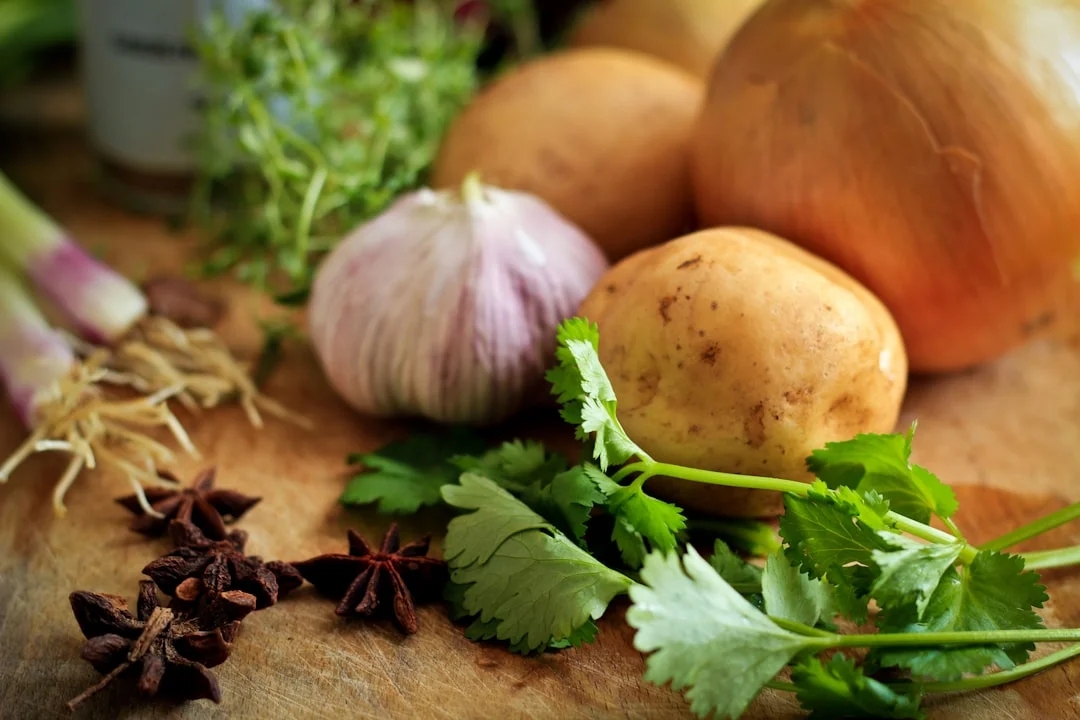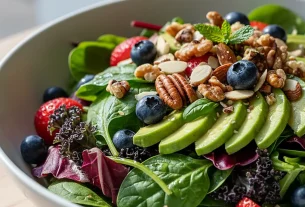Estimated Reading Time: 8 minutes
HHy there, health enthusiasts!
We all know the buzz around inflammation – it’s that sneaky culprit lurking behind a whole host of issues, from joint pain to nagging fatigue.
The good news? What we eat plays a starring role in keeping those inflammatory fires at bay.
Today, we’re diving deep into the best anti-inflammatory foods for daily meals – not just a list, but a roadmap to building delicious, health-boosting plates, every single day.
I believe that incorporating these foods into your daily routine can truly make a difference. It certainly has for me!
Think of your body as a finely tuned engine. What you put in – the fuel – directly impacts how smoothly it runs.
Processed foods, sugary drinks, and excessive saturated fats are like low-grade gasoline, sputtering and causing wear and tear (inflammation).
Conversely, a diet rich in whole, unprocessed foods acts as premium fuel, optimizing performance and keeping things running smoothly.
This is the basic principle behind the best anti-inflammatory foods for daily meals approach.
I remember a time when I was constantly battling aches and low energy.
After some research, I started consciously incorporating more anti-inflammatory foods. The difference was noticeable!
The nagging pains began to subside, and my energy levels soared. It wasn’t overnight, but it was a transformation.
Now, let’s explore some of the stars of the show.
Let’s get right to the good stuff – the foods that can actively fight inflammation.
Here’s a curated list of some of the best anti-inflammatory foods for daily meals, easy to incorporate into your everyday cooking.
We’re aiming for variety and flavor, because healthy eating should be enjoyable!
Salmon, mackerel, sardines – these aren’t just delicious, they’re packed with omega-3 fatty acids.
These essential fats are potent anti-inflammatory agents. Think of them as the special forces team of your immune system.
Aim for at least two servings of fatty fish per week.

Try grilling salmon with lemon and herbs, or adding sardines to your salad for a boost of flavor and nutrients. Don’t like fish?
Consider discussing with your doctor for supplement, as some people take a daily omega-3 supplement.
Spinach, kale, collard greens – these leafy greens are brimming with antioxidants and vitamins that combat inflammation.
They’re also incredibly versatile. Add them to smoothies, salads, stir-fries, or even sneak them into your morning omelet.
The possibilities are endless. I have a simple rule: If I can add a handful of greens to a meal, I do.
It’s a simple yet effective way to boost your intake of anti-inflammatory compounds.
Blueberries, strawberries, raspberries – berries are tiny packages of explosive flavor and health benefits.
Their vibrant colors signal a high concentration of antioxidants, which neutralize free radicals and reduce inflammation.
Sprinkle them on your breakfast cereal, blend them into smoothies, or enjoy them as a delicious, naturally sweet snack.
Pro Tip: Frozen berries are just as nutritious as fresh, and they’re great for smoothies!
Almonds, walnuts, chia seeds, flaxseeds – these nutritional powerhouses offer a winning combination of healthy fats, fiber, and antioxidants.
They help regulate blood sugar levels and provide sustained energy.
Snack on a handful of almonds, add chia seeds to your yogurt, or sprinkle flaxseeds on your salad. Just watch your portions, as they’re calorie-dense.
I personally keep a small container of mixed nuts and seeds at my desk for a quick and healthy snack.
Extra virgin olive oil is rich in oleocanthal, a compound with anti-inflammatory properties similar to ibuprofen.
Use it liberally in your cooking, drizzling it over salads, or as a dipping sauce for crusty bread.
Remember to choose a high-quality, extra virgin olive oil for the best benefits.
Opting for olive oil over butter is an easy swap with tangible results.
Turmeric, with its active compound curcumin, and ginger are both potent anti-inflammatory spices. Add them to curries, soups, smoothies, or even tea.
They also add a beautiful depth of flavor to your dishes. I love making a golden milk latte with turmeric, ginger, cinnamon, and a touch of honey.

It’s a warming and delicious way to incorporate these powerful spices into your daily routine.
Note: Curcumin is not easily absorbed, so it is recommended to consume it with black pepper to increase absorption.
Now that we’ve armed you with a list of the best anti-inflammatory foods for daily meals, let’s talk about how to weave them into your daily life.
Here are a few simple strategies to help you get started:
Start your day right with a breakfast that sets the tone for the rest of the day. Consider smoothies packed with berries, spinach, and protein powder.
Another favorite of mine is oatmeal topped with berries, nuts, and seeds.
A scramble made with eggs, spinach, and a sprinkle of turmeric will also do the trick. Avoid sugary cereals, pastries, and processed breakfast meats.
For lunch, pack a salad with grilled salmon or chicken, mixed greens, and a vinaigrette dressing.
For dinner, try a stir-fry with plenty of colorful vegetables, lean protein, and a drizzle of olive oil.
Another good option: baked salmon with roasted vegetables and quinoa. I almost always have some form of leafy greens and olive oil at my lunch.
A good source of healthy fat and a foundation for good health.
Let’s clear up some misunderstandings about anti-inflammatory diets. One common myth is that it’s a restrictive diet.
In reality, it’s about incorporating more nutrient-rich, whole foods and less processed options.
Another misconception is that it’s all or nothing – that one slip-up can undo everything. It is about sustainable lifestyle changes.
Consistency is key, but small changes add up over time. Don’t get discouraged by occasional indulgences.
Instead, focus on making the majority of your meals based on the best anti-inflammatory foods for daily meals.
While food is the cornerstone, other lifestyle factors play a vital role in managing inflammation.
Regular exercise, adequate sleep, and stress management are crucial components of a healthy lifestyle.
Chronic stress can contribute to inflammation, so make time for activities that help you relax and unwind, like meditation, yoga, or spending time in nature.
Getting enough sleep also allows your body to repair and rejuvenate.

Remember, building a healthy eating pattern is a journey, not a destination.
It’s about making sustainable changes that you can enjoy for the long haul.
Experiment with different recipes, explore new foods, and find what works best for you.
It’s also a great idea to consult with a healthcare professional or a registered dietitian to create a personalized plan that meets your specific needs.
So, there you have it – a deep dive into the world of the best anti-inflammatory foods for daily meals!
We’ve covered the essential ingredients, practical strategies, and debunked some common myths.
Remember, you have the power to nourish your body from the inside out.
By consciously choosing foods that fight inflammation, you’re investing in your long-term health and well-being.
Think of each meal as an opportunity to fuel your body with the nutrients it craves, helping you live a more vibrant, energetic life.
What are your favorite anti-inflammatory foods? Share your experiences in the comments below!
Don’t miss out on more health tips and delicious recipes! Join our newsletter for weekly health inspiration!
Frequently Asked Questions
Can I eat anti-inflammatory foods if I have a specific medical condition?
While the best anti-inflammatory foods for daily meals are generally beneficial, always consult your healthcare provider before making significant dietary changes, especially if you have a pre-existing medical condition like diabetes, heart disease, or any autoimmune disorders.
They can provide personalized advice based on your individual needs and circumstances. Some foods, while generally healthy, might interact with medications or exacerbate certain conditions, so professional guidance is crucial.
How quickly can I expect to see results from eating anti-inflammatory foods?
The timeline for seeing results varies depending on individual factors such as the severity of your inflammation, your overall lifestyle, and consistency with the diet. Some people report feeling better within a few weeks, while others may take longer to notice significant changes.
Consistent adherence to an anti-inflammatory diet, combined with other healthy lifestyle choices, typically yields the best long-term results. Patience and consistency are key. You’re aiming for a sustained shift in your body’s internal environment.
Are there any foods I should avoid on an anti-inflammatory diet?
Yes, certain foods can promote inflammation and should be limited or avoided as much as possible. These include processed foods, sugary drinks, excessive amounts of red meat, refined carbohydrates (white bread, pasta), and foods high in trans fats. The focus should be on whole, unprocessed foods as much as possible.
Minimizing or eliminating these inflammatory culprits is just as important as incorporating the best anti-inflammatory foods for daily meals. Reading food labels becomes crucial!
Can I get all the nutrients I need on an anti-inflammatory diet?
Absolutely! A well-planned anti-inflammatory diet, focused on whole, nutrient-dense foods, provides all the essential nutrients your body needs.
By including a variety of fruits, vegetables, lean proteins, healthy fats, and whole grains, you can ensure you’re getting a broad spectrum of vitamins, minerals, and antioxidants. If you have any dietary restrictions or concerns, consider consulting a registered dietitian.
They can help you create a balanced meal plan that meets your nutritional needs while minimizing inflammation.



